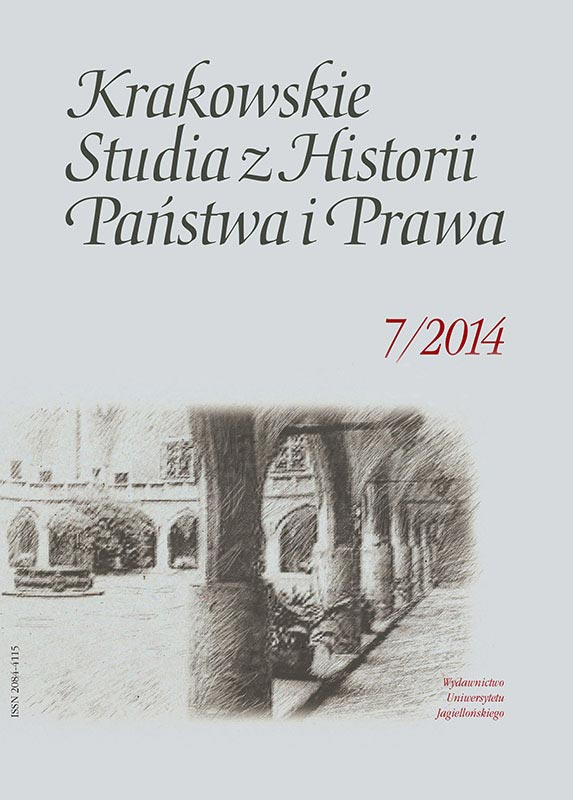Poselstwo króla Anglii na sejmie w 1637 roku w sprawie likwidacji gdańskiego stempla na angielskie sukno
Legation of the King of England at the Polish Seym in 1637 Concerning the Liquidation of the Gdansk Stamp in the English Cloth
Author(s): Izabela Lewandowska-MalecSubject(s): Law, Constitution, Jurisprudence, History of Law
Published by: Wydawnictwo Uniwersytetu Jagiellońskiego
Keywords: Kingdom of England; the Polish-Lithuanian Commonwealth; Baltic trade; stamp duty for cloth
Summary/Abstract: The trade contacts between the Kingdom of England and the Polish Commonwealth in the 17th c. were very lively. The commodity which was in particularly high demand in Poland was the English cloth. It was the English Trading Company with its seat in Elbląg that had the privilege for its supply. Yet political problems had exerted a negative impact on a harmonious economic cooperation. During the so called “Prussian” war of 1626, Gdańsk had retained its allegiance to the Polish Commonwealth, whereas Elbląg surrendered to the Swedes. In retaliation, at a Parliamentary session of 1628, Gdańsk had been granted compensation for the losses caused by the war and subsequently, due to the empty state treasury, it was granted the right to charge stamp duty on the cloth that was obligatorily transported through the Gdańsk port. Finally, the Trading Company had been deprived of its seat in Elbląg. The efforts of the Company agents, who also enjoyed the status of royal envoys, aimed at establishing the company’s seat in Gdańsk and ultimately liquidating the Gdańsk duty stamp. An example of the activities undertaken by the Company was the diplomatic mission of Francis Gordon at the Polish Seym in 1637. His legation had been received and heard by the deputies of the Polish Diet on 18 February; Gordon had read the letter of king Charles I Stuart pointing to the dangers and losses which resulted from stamping English cloth by the Gdańsk port authorities. Yet Gordon’s mission did not achieve anything as the Seym’s session ended ineffectively and no resolutions were passed. The battle for the liquidation of the stamp continued. At a successive Seym session in 1638, a resolution concerning a temporary suspension of the Gdańsk privilege had been reached; it was even debated whether the privilege is at all in accord with the law of the Polish Commonwealth, if it constituted a restriction of the freedom of trade. Finally at a Seym session in 1647, it was decided that the stamp should not be withdrawn, but that other port cities should also have a right to use it.
Journal: Krakowskie Studia z Historii Państwa i Prawa
- Issue Year: 7/2014
- Issue No: 1
- Page Range: 193-200
- Page Count: 8
- Language: Polish

